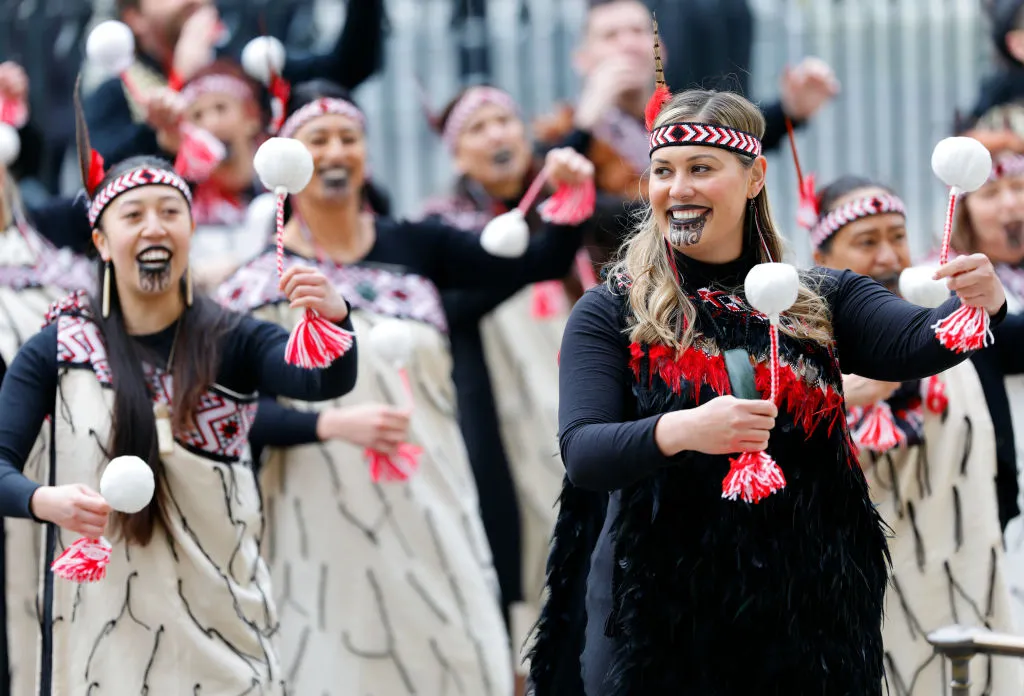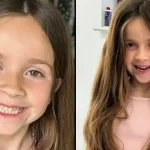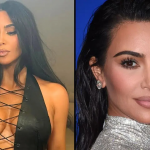A New Zealand news presenter responded assertively to a viewer who disparaged her Maori facial tattoo. This came after she achieved a historic milestone as the first individual with a moko kauae to anchor a primetime news broadcast in New Zealand.
For those unfamiliar, a moko kauae is a traditional adornment worn by Maori women, typically consisting of markings on the lips and chin.
As per the official New Zealand website, a moko kauae symbolizes a woman’s connection to her extended family or community, highlighting her leadership role within that community. It also acknowledges her lineage, social standing, and capabilities.
As stated on the official website, the moko kauae is considered a traditional taonga (treasure) that has been passed down through numerous generations, originating from the ancestress Niwareka.

Members of the Ngti Rnana London Mori Club show off traditional Maori clothing and facial markings. Credit: Max Mumby/Indigo/Getty
Signifying deep cultural significance, numerous Maori women proudly adorn their facial art, exemplified by Oriini Kaipara. In a historic moment in 2021, she achieved a groundbreaking milestone by becoming the inaugural person to present a primetime news broadcast in the country while showcasing a moko kauae.
While the moment was iconic, it did not come without backlash.
A viewer, known solely as David, filed a complaint to the show, criticizing Oriini Kaipara’s traditional tattoo as a “negative appearance” and expressing discontent that she occasionally incorporates the Māori language, which he claimed the audience did not comprehend.
The news anchor wasn’t about to let this slide. Instead, she took to social media promptly to denounce David and his uninformed comments.
Expressing gratitude for the feedback on her “moko,” she initiated a post on Instagram with a firm response, stating, “Thank you for all your complaints against me and my ‘moko.’ I do find them very difficult to take seriously, given there is no breach of broadcast standards.” Continuing, she corrected a mispronunciation: “If I may, I’d like to correct you on one thing – it is moko, not ‘moku.’ A simple, helpful pronunciation guide of ‘Maw-Caw’ will help you articulate the word correctly.”
Continuing her response, she addressed the source of the complaints, saying, “I gather your complaints stem from a place of preference on how one must look on-screen, according to you. Moko and people with them are not threatening, nor do they deserve such discrimination, harassment, or prejudice.”
Highlighting the cultural significance, she emphasized, “Moko are ancient cultural markings unique to the indigenous people of Aotearoa, myself included.” She concluded by suggesting that the viewer reserve his “cultural ignorance” for “another lifetime, preferably in the 1800s.”
Kaipara gracefully signed off with “Nga mihi matakuikui o te wa” before adding, “The lady with the moko kauwae who speaks Māori but MOSTLY English on TV.”
The news anchor later discussed the incident with The New Zealand Herald, revealing that the particular viewer she had addressed had been consistently persistent in expressing his objections.
She underscored that these complaints are coming from a minority, highlighting that she also receives numerous “lovely and thoughtful” messages from other viewers.
She added, “The fact that my existence triggers some people underscores the need for more Māori advocates in pivotal roles across every sector.”
It brings us great joy to hear that!





